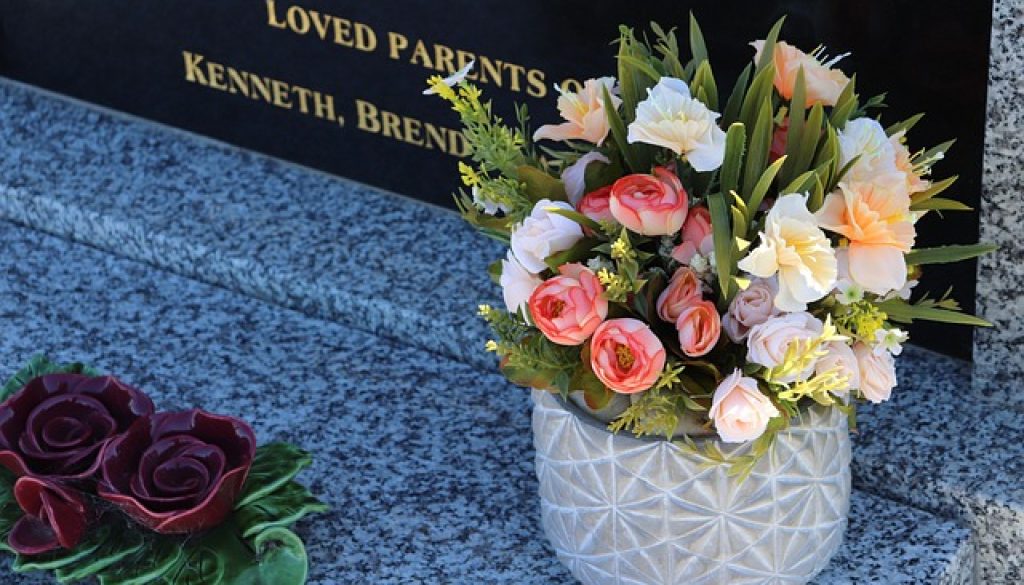Step 4 of Life-Care Planning: Final Wishes, Dignity & Compassion
Now we reach the end. The entire life-care planning process is meant to ensure A LIFE WORTH LIVING for our elder loved ones. And that’s especially the case for the final step: end-of-life planning.
It’s a tough conversation. I’ve facilitated many of them as a Board-certified Patient Advocate in Clearwater, FL, guiding clients on the uncertain journey through life’s final stages – and beyond. Step 4 of the life-care planning process, Final Stages Planning, is not just about preparing for the end — it’s about ensuring that the final chapters of life are filled with meaning, dignity and love.
To recap, the first three steps are:
- Step 1 of Life Care Planning: Let’s Get to Know Each Other
- Step 2 of Life Care Planning: Tools for Living Your Best Life
- Step 3 of Life Care Planning: Taking Care of Those Who Take Care of Us
Death is one of life’s certainties (you know the saying about death and taxes). But instead of fearing it, we can prepare for it thoughtfully. By doing so, we empower ourselves and our loved ones to navigate this phase with grace and confidence.
Final Stages Planning for a Death with Dignity
We all deserve to die with dignity. Our elder loved ones would wish that for us when the time comes. We should wish no less for them. Let’s explore how Step 4 helps create a plan that honors the life lived and brings peace to the person and their care partners.
Comfort Care & Living Life to the Fullest
When we think about the final stages of life, the goal isn’t just to exist and exit this world without too much hassle. It’s to live fully and freely. Even in the face of difficult circumstances, we can ensure that life continues to have meaning, joy and comfort. This part of the life-care planning process includes asking essential questions about what brings the person peace, comfort and happiness during their final days.
It might involve being surrounded by loved ones, hearing favorite music, holding a cherished family heirloom, or having the companionship of a pet. Planning for comfort care means identifying the small details that can bring immense emotional and physical comfort.
This is also the time to consider options like hospice or palliative care. These specialized services focus on providing the best quality of life possible, addressing physical symptoms like pain or discomfort while also supporting emotional and spiritual needs.
End-of-Life Planning: Communicating Final Wishes
Clear and consistent communication is the driving force behind the entire process of life-care planning. One of the most important aspects of Step 4 is ensuring that your elder loved one’s wishes are clearly communicated and documented.
It’s not enough to have these conversations casually. Writing them down and sharing them with care partners is essential.
Here are a few areas to consider:
- Medical Care Wishes: What kind of care would you like to receive in the final stages? Are there interventions your loved one would prefer to avoid? For example, some people prioritize comfort care over aggressive treatments.
- Legal & Financial Documents: Make sure documents like a healthcare directive, power of attorney, and will are in place and up to date.
- Personal Preferences: Does your loved one have preferences for where they’d want to spend their final days? Would they prefer to be at home or taken to a place of special meaning (if feasible)?
When these wishes are clearly outlined, it relieves care partners of the burden of guessing. Sometimes guessing leads to serious conflict within families, which may linger for years or never be repaired. When end-of-life care is planned well, care partners can focus on honoring needs and desires with confidence and love.
Celebrating a Life Well Lived & Thoroughly Enjoyed
The end of life is not just about saying goodbye. It’s about celebrating the life lived. What does your loved one wish for their celebration to look like?
This might include:
- Special Songs or Music: Is there a song that has always brought you comfort or joy?
- Memories to Share: Are there particular stories, photos or videos that should be part of the celebration?
- People to Include: Is there someone who must be present or speak at the celebration?
Planning a celebration of life gives loved ones and other care partner team members a guide to honor them in the way they’d want to be remembered. It’s a gift to everyone involved — a reminder of a legacy and joy brought to the world.
The Basics of Final Arrangements
Final arrangements are understandably overwhelming for families, especially in the midst of grief. After all, saying goodbye is tough. That’s why this step includes a comprehensive strategy for gathering all the necessary information in one place.
Some details to consider:
- Burial or cremation preferences.
- Cemetery or memorial preferences.
- Obituary details, including how your loved one would like their story to be shared.
- Financial considerations, like ensuring the cost of arrangements is covered.
When these details are planned and documented, it lifts a tremendous burden from your loved ones, giving them more time to focus on celebrating your life and cherishing memories.
Step 4 of Life- Care Planning: A Holistic Approach to Final Stages
Clearly, final stages of life-care planning aren’t just about logistics. They’re about creating a holistic approach to the final stages of life. It ensures that every aspect of this phase is handled with care and intention.
Here’s what I believe:
- Dignity Matters: Every person deserves to face the end of life with dignity, knowing that their wishes are respected.
- Preparedness Eases Stress: When we prepare, we reduce caregiver stress and uncertainty that can come with the unknown.
- Love Guides the Journey: Final stages planning is a gift of love—to yourself and to your care partners. It’s a way of saying, “I care about you enough to plan this for you.”
Book & Upcoming Life-Care Planning Masterclass: Practical Tools for Care Partners
I’ve developed a workbook for the life-care planning journey titled “Because I Love You: My Book About Me.” It includes resources to plan all steps from making assisted living feeling more like home to navigating end-of-life care.
This workbook is designed to guide care partners and families through this process with compassion and clarity. We plan because we care. I also invite you to join my Life Care Planning Masterclass, which is scheduled for release in late January.




